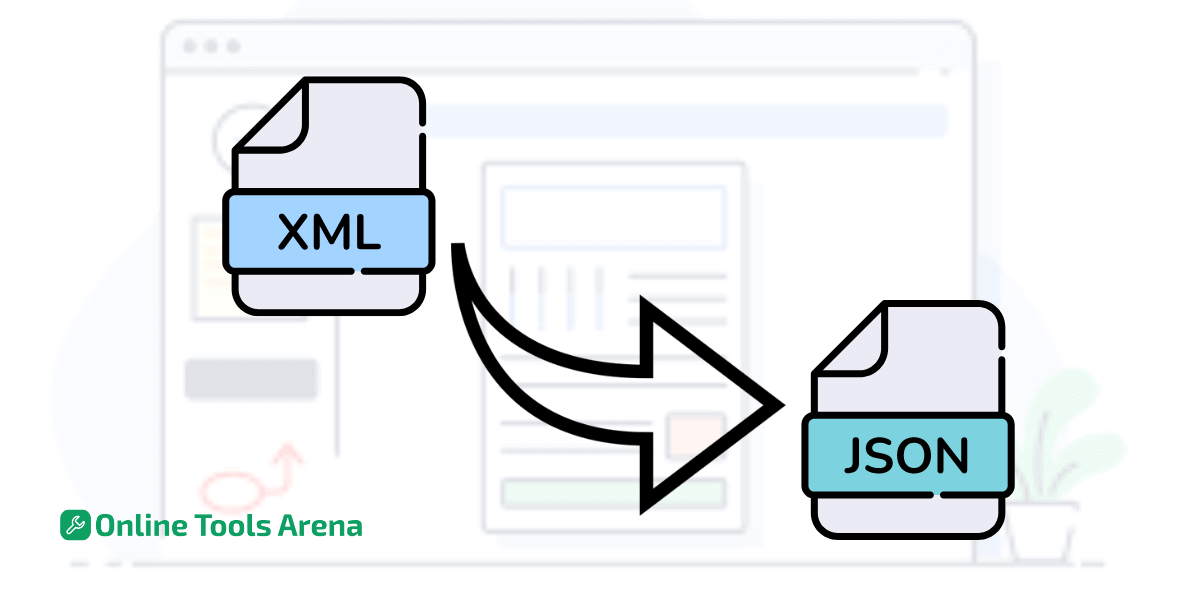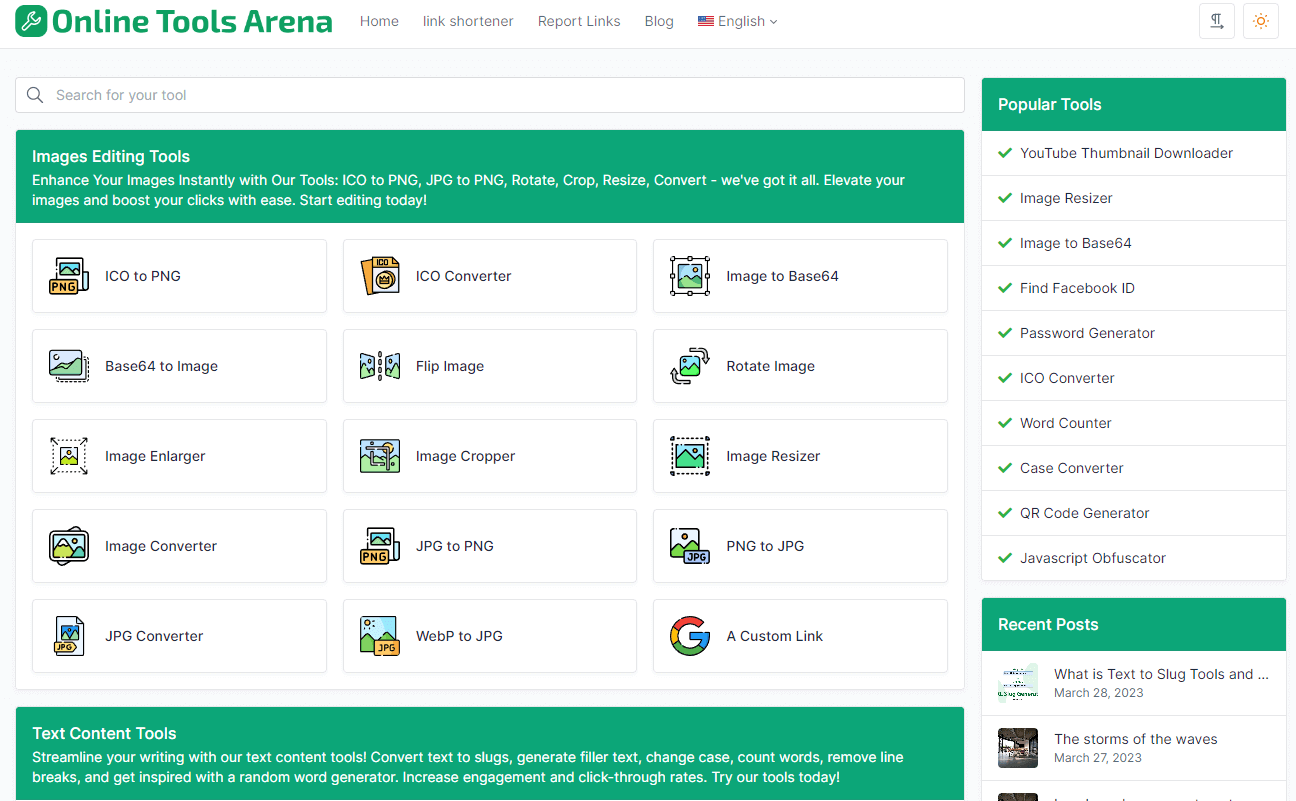
XML a JSON
Transforme XML en JSON rápidamente

XML to JSON conversion is a basic procedure in current data management that helps manage and transmit data across several applications and platforms. In this article, we will discuss the details of XML and JSON, reasons for converting XML to JSON, how it is done, benefits and possible challenges as well as application scenarios. We will also present you a great tool that can help you convert files effortlessly. So just as a beginner let us first understand the fundamentals.
Table of Contents
What is XML?
XML, an acronym for Extensible Markup Language, is a flexible data format that is used to organize and store information in human-readable form. It is based on a hierarchical model where information is framed in tags making it easy to classify and arrange. Firstly, XML has applications in numerous spheres including web development, configuration files and data exchange across the systems.
XML Example:
xml
<person>
<name>John Doe</name>
<age>30</age>
<city>New York</city>
</person>
What is JSON?
JSON is a light-weight data interchange format that is easy for humans to read and write, as well as it is easy for machines to parse and generate. It is implemented with a key-value pair structure which makes it very natural and applicable for many programming languages. JSON is widely adopted for data interchanging between server and web app, as well as used for storing configuration files and other purposes.
JSON Example:
json
{
"person": {
"name": "John Doe",
"age": 30,
"city": "New York"}}
Reasons for Converting XML to JSON
Compatibility: JSON is better suited for modern web applications and can be easily included in JavaScript, which is one of the most popular programming languages used for web development.
Lightweight: JSON files are usually more compact compared to XML hence best suited for transmitting and storage of data.
Simplicity: Its relatively easy syntax and structure is a reason why more developers can work with JSON, thereby reducing the code complexity.
Speed: JSON parsing is very fast and requires minimal resources, which is critical for web applications that receive a lot of requests.
Manual Conversion
When an XML data is to be transformed into JSON, the manual conversion includes writing codes or utilizing test editors. However, this approach may be very laborious and even prone to mistakes if datasets are large.
python
import xml.etree.ElementTree as ET
import json
xml_data = '''<person>
<name>John Doe</name>
<age>30</age>
<city>New York</city>
</person>'''
root = ET.fromstring(xml_data)
json_data = json.dumps({root.tag:
print(json_data)
Using OnlineToolsArena's Converter
To have a faster and more convenient conversion, you can make use of online converters such as OnlineToolsArena’s XML to JSON converter. We make it easy for you to convert, all you need is a XML file that should be uploaded and JSON output will be sent immediately.
Conversion Through Programming
Seasoned developers, especially on complicated XML structures, may opt to write code for conversion from scratch. In the most popular programming languages such as Python, Java and JavaScript, there are libraries and modules for parsing XML and generating JSON.
Benefits of JSON Over XML
Simplicity: JSON has a simple mechanism of key-value pairing which makes it more readable and workable and the developers can easily use these structure without much learning.
Lightweight: The JSON files are less in size and this makes them be transmitted faster with the requirement of little storage space.
Compatibility: JSON is perfectly combined with JavaScript that is necessary for Web development.
Efficiency: JSON parsing is a process with higher speed and does not consume much of system resources so it is appropriate for high-performance applications.
Potential Pitfalls in Conversion
Data Loss: Such conversions may be accompanied by data loss as the hierarchical nature of XML does not always fit into JSON’s key-value structure.
Complex XML Structures: Working with XML that includes difficult patterns can be cumbersome, especially while converting by hand or using custom code.
Encoding Differences: It is possible to use different character encodings in XML and handling of these during the conversion can be a difficult process.
Real-World Applications of Conversion
XML to JSON conversion is used in many fields and sectors due to its flexibility and ease of data exchange.
Web Development
JSON is the standard format for web APIs and so conversion of XML into JSON becomes a necessity while trying to retrieve or manipulate data over the internet from a web based application. The front-end developers also prefer JSON because of its compatibility with JavaScript.
Data Transfer
XML to JSON conversion can be useful in data integration processes that require the merging, transformation, and transfer of information from different sources. The fact that JSON is efficient in terms of data exchange makes it widely used for data-driven applications.
Configuration and Settings
XML is used in a lot of software applications for configuring files and setting. The transformation of these XML report files to JSON would improve the readability and ease of configuration management.
How To Use Our Converter
OnlineToolsArena’s XML to JSON converter is One of the most basic and user-friendly tool
- Enter the XML data directly into the provided text box.
- Once you've uploaded your XML data, click the "Convert" button.
The tool will process your XML data and provide the corresponding JSON data in the text box below.
There are several advantages of the XML to JSON conversion process which make it a vital procedure in the contemporary data environment that include simplicity, compatibility with web development, and effectiveness. There are several ways to convert XML to JSON, starting from the manual conversion and online tools, but this decision varies depending on your needs and skills. Pay attention to the possible traps and fall into them using a trustworthy converter, for example, the one provided by OnlineToolsArena. No matter if you are engaged in web development, date integration, or configuration management—the ability to convert XML into JSON is a useful skill that can streamline work with data and accelerate your ventures.









